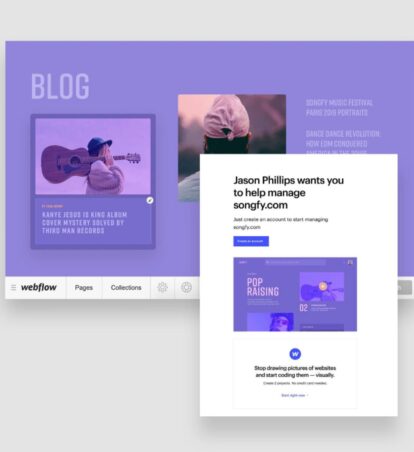Website Landing Page Best Practices For Hoteliers
In the competitive landscape of the hospitality industry, hotels need to leverage every opportunity to attract and convert potential guests. One essential component is the hotel landing page. These dedicated web pages play a crucial role in guiding users through the guest journey, from initial interest to completing a booking. In this blog post, we will explore the importance of hotel landing pages, their key elements, best practices for design, and integration with digital marketing campaigns.
What Is a Landing Page?
A landing page is a stand-alone web page specifically designed to capture the attention and prompt action from visitors. It serves as a dedicated entry point for users who click on a specific advertisement, search engine result, or marketing campaign. Unlike a website's homepage, a landing page is focused on a specific goal, such as promoting a hotel offer, package, or event or encouraging visitors to take a particular action, such as booking a room, signing up for a newsletter, or filling out a form. Landing pages are designed to be concise, persuasive, and highly targeted to maximize conversions and drive designed outcomes.
Understanding the Importance of Hotel Landing Pages
Hotel landing pages serve as the entry point for potential guests and are designed to capture their attention, engage them with persuasive content, and ultimately lead them to take action. They provide a focused and tailored experience, highlighting the unique selling points of the hotel and its offerings. By optimizing landing pages, hotels can maximize conversions, ultimately driving bookings.
Hotel Landing Page Best Practices
Best practices for a landing page involve optimizing various elements to enhance its effectiveness in capturing visitors' attention and driving conversions. Here are some key points to consider.
- Call-To-Action
Call to action is one of the most important features of any hotel landing page. Also known as CTAs, they offer actionable direction for the user. Without a clear CTA, users can be confused and as a result, you will see increased bounce rates, shorter sessions, lower conversions, and a less-than-ideal landing page experience.
- Clear and Compelling Headlines
Headlines are essential components of any landing page. They quickly and easily tell the user what that landing page is about and can convey the value the page can offer them. Headlines also offer SEO benefits to help crawlers understand who the page is created for.
- Social Proof
Humans are social creatures who seek validation from others to make decisions. Visitors will look to others to make important decisions, such as booking a room. Make sure to include your hotel ratings and testimonials when it matters to page visitors the most.
- Captivating Visuals
Users will look at graphics and pictures to help conclude if your hotel, packages, and amenities are the right fit for them. For most, pictures are more important than copy. So ensure you can tell a visual story alongside captivating and compelling copy.
- Consistent and Compelling Copy
The text on the page matters. A lot. Unfortunately, we have seen too many hoteliers hire lackluster writers who do not convey the real value of their hotel. When it comes to good copy, it has to be concise, branded, and value-driven. Ask yourself, "Is my website copy true to my brand? Can it quickly convey value?" If you answer "no" to either of those questions, it is time to revisit your copy.
- Intuitive Design
Good design offers easy navigation and puts the right information in front of the user at times when it matters most. Good design will captivate your visitors and compel them to explore other parts of your website. This can establish strong relationships between you and your visitors. Ultimately resulting in lower bounce rates, greater conversion rates, and higher session duration times.
- Don't Forget About Mobile
Mobile users have consistently been increasing over the last decade. Yet, the mobile user experience is still heavily neglected by hotels. If you are running any sort of social campaign, this is likely the very first user interaction. Make sure it offers a good user experience with these critical points:
- Responsive Design Elements
- Fast Load Time
- Intuitive Mobile Navigation Layout
Conclusion
Hotel landing pages are crucial for attracting and covering potential guests in the competitive hospitality industry. These dedicated web pages serve as entry points, capturing visitors' attention and guiding them toward action. By creating well-thought-out landing pages, hotels can maximize conversions and drive bookings. Best practices for effective landing pages include clear CTA's, compelling headlines, persuasive and concise copy, social proof elements, captivating visuals, and straightforward & intuitive design. Following these practices helps hotels create engaging landing pages that drive conversions and achieve success in the hospitality industry.


